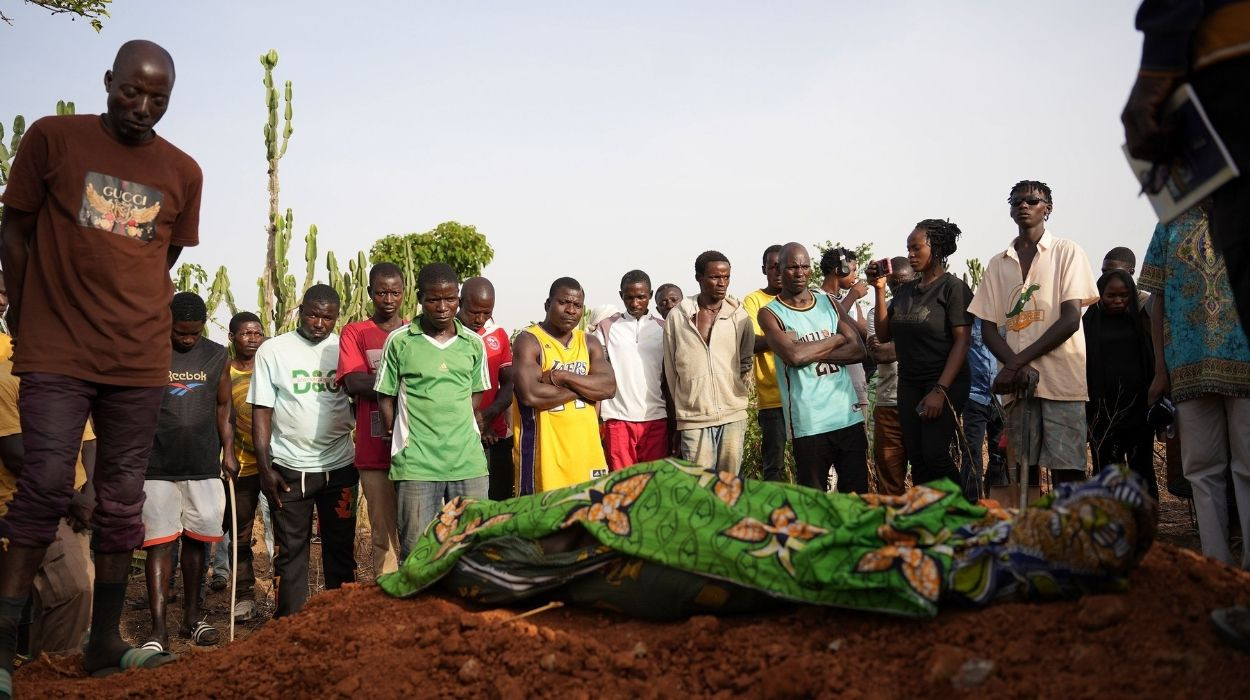Religious violence in Nigeria has reached devastating heights, with over 7,000 Christians killed in 2025 alone amid ongoing attacks by extremist groups. This violence, deeply rooted in Nigeria’s ethnic, religious, and political complexities, has brought grief to numerous communities in the northern and central regions where Christians live alongside Muslims. Beyond the raw data of lives lost and communities displaced lies a web of international scrutiny and competing narratives about the root causes and the appropriate responses to this crisis.
In 2025, reports reveal an unprecedented wave of violence targeting Christians, accounting for more than 7,000 deaths within the year’s first eight months. This staggering toll averages to roughly 30-35 Christian lives lost each day, many of whom fell victim to Boko Haram, Fulani extremists, and militants linked to the Islamic State West Africa Province (ISWAP). The conflict’s epicenter is Nigeria’s Middle Belt, particularly Benue State, notorious for both the Yelewata massacre, where approximately 280 Christians were killed, and other brutal attacks that swept through farming communities. Here, the fertile soil that sustains Nigeria’s food supply has become a battleground, leaving families grief-stricken and farmlands abandoned.
Authorities have been accused of tolerant complacency toward at least 22 jihadist factions, some reportedly allied with global terrorist networks such as ISIS and ISIL. Since Boko Haram's insurgency began in 2009, the cumulative death toll now exceeds 185,000 civilians, including more than 125,000 Christians. Displacement figures highlight a human catastrophe: over 12 million Christians have been uprooted from their homes, forced into internal displacement camps where basic necessities and aid are often scarce. Despite these grave losses, those who remain in their villages often do so out of determination to protect their ancestral lands, continuing to resist the violence through farming and local defense.
Though Christianity has been disproportionately impacted, the violence transcends a simple religious narrative. The religious identity of victims sometimes obscures broader ethnic, political, and economic grievances fueling these conflicts. Reports assert that significant violence also affects liberal Muslim communities and others caught in the crossfire. Some researchers emphasize that the conflict's multifaceted nature defies a singular explanation, citing that many attacks result not only from religious fanaticism but also from competition over land rights, resources, and political control.
The involvement of Fulani herdsmen, primarily Muslim, introduces a pastoralist-versus-farmer conflict superimposed on religious identifiers. This adds layers of tension between settled agriculturalists and nomadic cattle herders, leading to localized violence often escalating into communal massacres. Such complexity mandates careful examination beyond sweeping accusations to understand the intricate dynamics at play.
International reactions, particularly from the United States, have deepened existing controversies. Certain American political actors have publicly criticized Nigeria, alleging systematic persecution of Christians and calling for stronger interventions. These claims reflect anxiety about an existential threat to Nigerian Christians, though at times oversimplified for political traction.
In contrast, Nigerian leadership, spearheaded by President Bola Tinubu, repudiates these depictions, arguing they exaggerate or misrepresent the realities on the ground. The Nigerian government maintains that efforts to foster national unity and religious tolerance continue despite the security challenges. There is also concern that external narratives could undermine Nigeria’s sovereignty and inflame sectarian divisions. This balancing act remains sensitive, as Nigeria seeks international support while asserting control over its internal affairs.
Subject-matter experts caution against labeling the situation outright as genocide, highlighting the necessity for precise terminological usage considering both perpetrators’ intent and the context of violence. Such caution aims to avoid the exacerbation of tensions that could result from alarmist designations, which may not fully align with international legal definitions or the complex realities on the ground.
The sheer number of displaced individuals poses dramatic humanitarian challenges. Millions of displaced Christians inhabit camps with limited access to food, healthcare, and shelter. Many communities face cultural erasure as attacks extend beyond killing to include targeted destruction of churches, homes, and farmlands. The destruction of thousands of churches and the seizure of vast tracts of land reflect attempts to systematically dismantle Christian presence in affected regions.
Families torn apart by violence endure psychological trauma and economic deprivation. Women and children are especially vulnerable, at risk of abduction, forced conversions, and exploitation. Internal displacement camps, while offering refuge, struggle with chronic underfunding, neglect from authorities, and persistent insecurity.
The crisis in Nigeria underscores the urgent need for integrated responses that address security, humanitarian aid, socio-economic development, and reconciliation. Simplistic narratives or geopolitical posturing risk deepening divisions and obscuring root causes. True progress will require sustained dialogue, strengthened governance, and international solidarity that respects Nigeria’s sovereignty while providing meaningful support to vulnerable communities.
Efforts to protect Christians must be part of broader initiatives to safeguard all Nigerians from violence—including liberal Muslims and other minorities—while encouraging peaceful coexistence and equitable resource sharing. Enhancing community resilience, ensuring timely humanitarian assistance, and promoting justice against perpetrators can contribute to long-term stability.
Lúcio Tembé, community leader and activist has been shot in the head by two gunmen. An investigation into Palm Oil involvement is underway.
There's a need to define and evaluate actual and expected negative human rights effects which may result from business enterprises’ activities or their re…
Ashley Buchanan’s abrupt firing as Kohl’s CEO reveals serious ethical breaches, governance failures, and critical lessons for corporate leadership.
impactpolicies@proton.me
